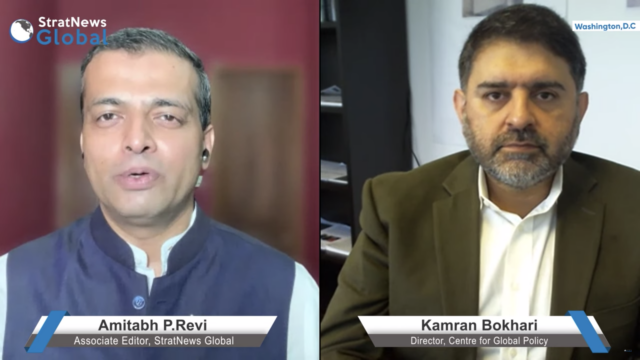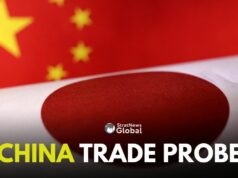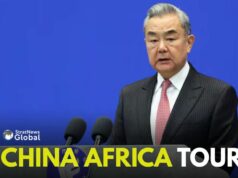NEW DELHI: The U.S. has toned down a draft resolution at the UN in its bid to extend the Iran arms import-export embargo. While that could garner more support in the 15-member UN Security Council (UNSC), it won’t overcome opposition by veto-wielders Russia and China. Geopolitical expert Dr Kamran Bukhari says the move is just one of the Trump administration’s ‘maximum pressure tools’ to ‘maximise his vote base’ in an election cycle. On the six-member Gulf Cooperation Council (GCC) unanimously endorsing the American move in a letter to the UNSC, the Director, Analytical Development, Center for Global Policy in Washington, D.C. says despite an internal split against Qatar, the GCC (which has no member on the UNSC) has to try to “make sure Iran is contained”. Reports also indicate Washington may trigger a complicated ‘snapback’ procedure that could trigger the arms embargo extension, set to expire on October 18. Analysts feel that’s an attempt to formally end the 2015 nuclear deal (Joint Comprehensive Plan of Action-JCPOA) involving Iran, Russia, China, Germany, Britain, France and the United States which the U.S. unilaterally quit in 2018. The U.S. is “using its influence and leverage around the world”, Dr Bukhari says, when it “can’t unilaterally impose its policy”. The United States has asked UNSC members for comments on its draft by Wednesday evening India time. The UNSC is operating virtually so once a vote is called, members have 24 hours to submit their response. The result will be announced at a public meeting. Iran’s UN Permanent Representative Majid Takht Ravanchi reacted to Washington’s revised draft, tweeting, “Rebuffed by UNSC members, the US was forced to retreat from its draft resolution on the Iran arms embargo, and proposed another version. I am confident that the Council will, again, reject this move.”
On reports of a China-Iran 25-year $ 400 billion strategic partnership even while other leaks allege Beijing is helping Tehran’s arch ideological rival Saudi Arabia in its nuclear programme, Dr Bukhari points to “U.S. pressure on China” on multiple fronts as part of its aggressive pushback. China doesn’t need to “cross the bridge” of choosing between Saudi Arabia and Iran immediately, Dr Bukhari argues, pointing out the “mileage” and “leverage” it gets against the U.S.
Despite U.S. sanctions, India-Iran ties are one of those things “brewed slowly unlike fast food”, Dr Bukhari says, adding its “a long term thing the Iranians and the Indians are never going to give that up, regardless of who’s in power in Delhi.” The CGP director also discusses the Pakistan-Saudi row and China stepping up efforts to push the Belt and Road Initiative (BRI) in what both Beijing and Delhi consider their “traditional stomping grounds”.
The 'Eye' of the story not the 'I' of the story. That's Amitabh Pashupati Revi's credo from the beginning of his professional journey in 1995. From conflicts in the war zones of Afghanistan, Syria, and Iraq to nuances of international politics in the Maldives,Thailand, and South Sudan, Amitabh has reported from all the world's continents, except for Antarctica(so far). Though, he has documented the world's third pole, the Siachen Glacier!
Amitabh reports and produces documentaries on the two-front China-Pakistan threat to India. His ground reports from Arunachal Pradesh and Ladakh have received viewership in the hundreds of thousands. Amitabh has interviewed world leaders, top global analysts, and experts in India, Russia, the United States, and Australia as well. Along the way, he’s picked up the Russian language, the Ramnath Goenka Award for his reporting on the 'Islamic State' terrorist group in Iraq, the Khaled Alkhateb Award for his reporting from Palmyra, Syria, and the UN Dag Hammarskjöld Distinguished Journalist Fellowship. Last but not least, as a founder member of StratNews Global, Amitabh helps lead the reporting, editorial, production, and administration teams at StratNews Global, BharatShakti, and InterStellar on their journey ahead.





